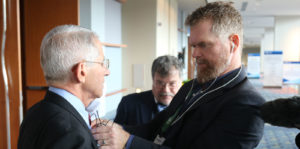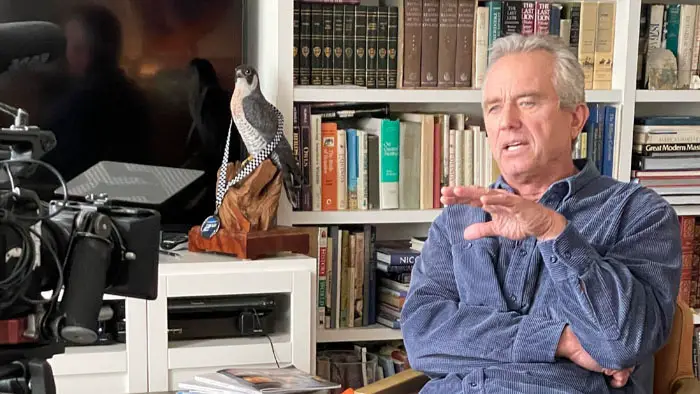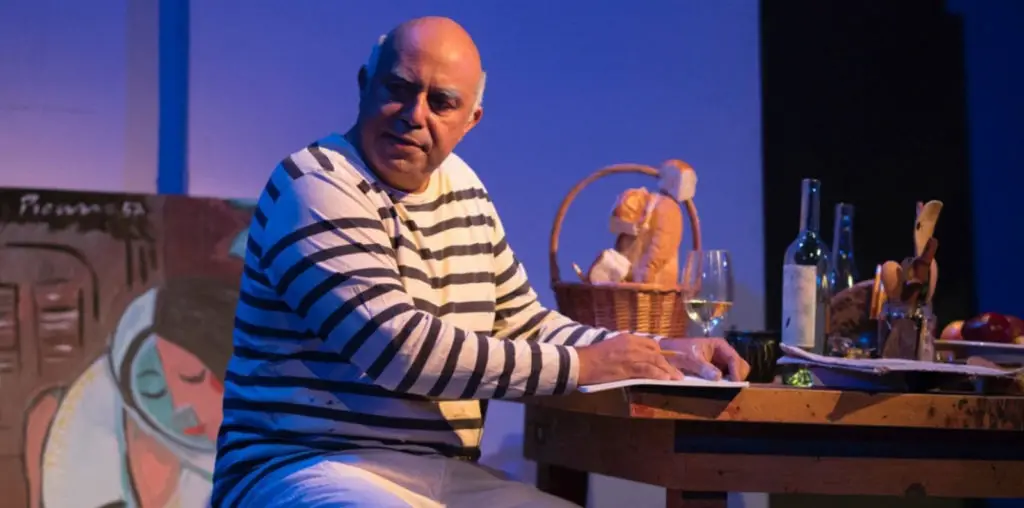
Vaccines and disinformation have been vitally important topics for the past few years, especially during the height of the pandemic. Oscar-nominated director Scott Hamilton Kennedy (for The Garden) and astrophysicist/executive producer Neil deGrasse Tyson set out to make a documentary about vaccine hesitancy with the measles. Still, then the Covid-19 pandemic struck in the middle of filming, so they instinctively shifted the focus.
A Shot in the Arm is insightful, empathetic to parents who struggle with who to trust when it comes to the paramount decision regarding their children’s health, and damning to those such as Del Bigtree, Andrew Wakefield, and Robert Kennedy Jr., who prey on the vulnerable for fame and fortune. It’s also highly heartbreaking to watch some of the victims who could have been saved by vaccines taking their dying last breaths, and even more so for the parents of children with measles who died due to misinformation.

“…once facts don’t matter, once truth doesn’t matter, then it’s not a democracy anymore.”
The documentary has a quote by Dr. Paul Offit: “Once facts don’t matter, once truth doesn’t matter, then it’s not a democracy anymore.” The film ties into when “patriots” stormed the capitol on January 6th after misinformation about a stolen presidential election, with the anti-vaccine rally being held literally down the street.
I asked Scott Hamilton Kennedy and Neil deGrasse Tyson how we can give people the tools to find reliable information. Scott said that we should start with humility. Just because we’ve heard something and want something to be true doesn’t mean that it is. Have the humility to check yourself and have systems in place, such as honest family members and friends and going to experts and data. Neil said that sometimes a charismatic person can sway our beliefs, but the great thing about science is that it is true whether you believe it or not. “The pathway that one has to adopt is not taught in school. Where have you ever taught what science is? And how and why it works? And how and why it’s effective? And what’s going on on the frontier versus the objective truths that have been multiply verified that are in the book. Where does that happen? I haven’t seen it.” Tyson says this critical thinking would not have to be limited to science. “Imagine if critical thinking were taught in your history class?” Reading a book about a battle and the people who won the battle wrote the book. Are you being handed an understanding that may not be the full truth? In the case of the liberal arts, there may not be an absolute truth but a more nuanced understanding of what is going on. (On a side note, I took a critical thinking course at Orange Coast College that was immensely valuable to me, and I wish more schools would teach it because it’s obviously a tool lacking in society right now).
“In this case, you may be listening to a lone wolf, M.D. expert (Andrew Wakefield) who says vaccines are bad. Listen to me because the establishment doesn’t want you to know this. Oh my gosh, that’s irresistible as clickbait. We all want to see the one thing that is true, that the establishment is suppressing. Watch your bias at that point. Are you going there because you want it to be true? Because it feeds your needs.” Tyson goes on to say that the film really examines all of these things and the social contract of looking out for others’ needs besides yourself. “If not, what does it mean for you to be a member of society? What does it mean to take civilization into the future if you’re not going to participate in that? And this film became about all of that.”


This sure didn’t age well
[…] Disclaimer: This story is auto-aggregated by a computer program and has not been created or edited by filmibee.Publisher: Source link […]